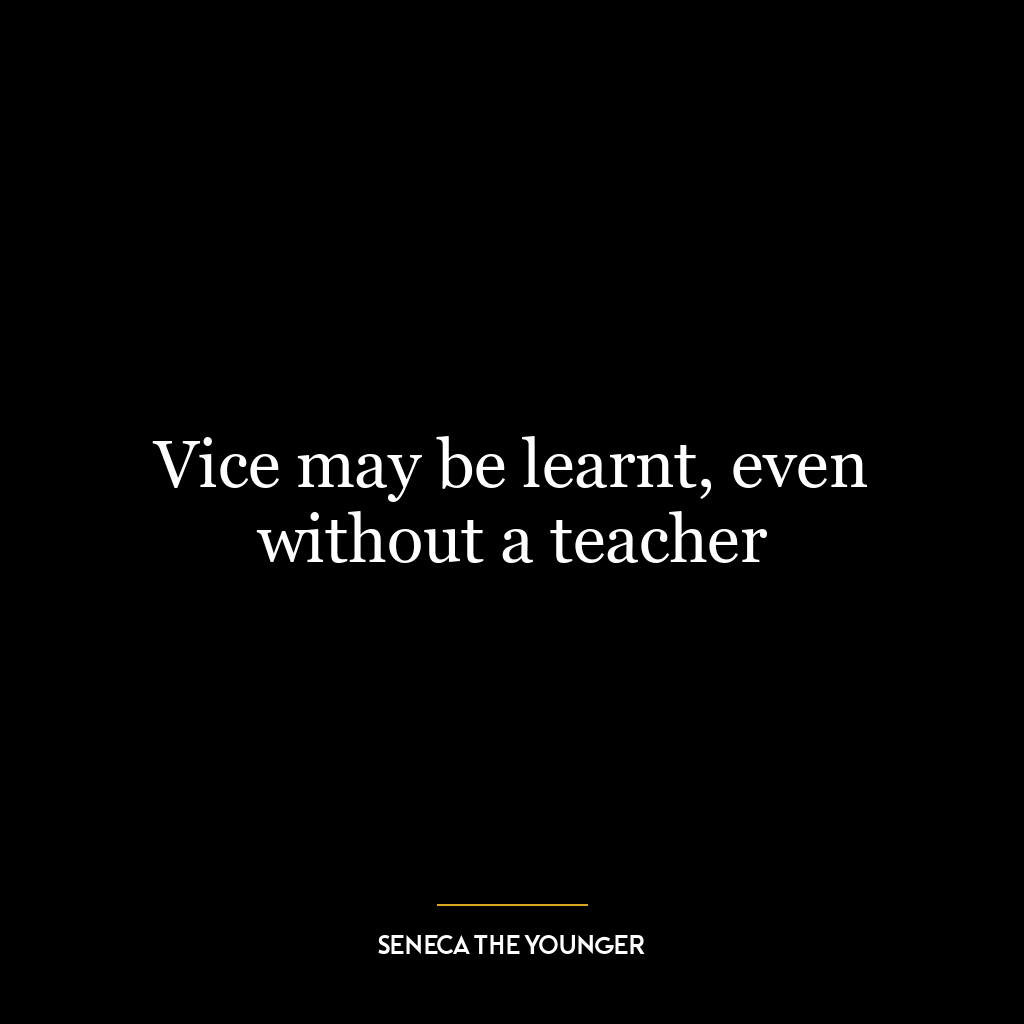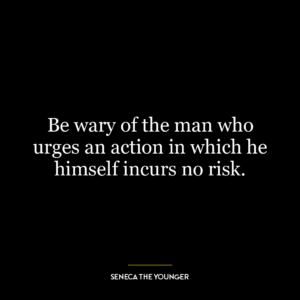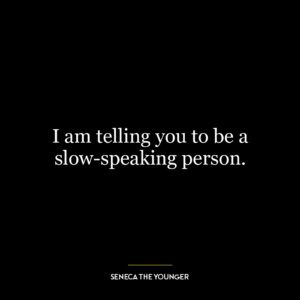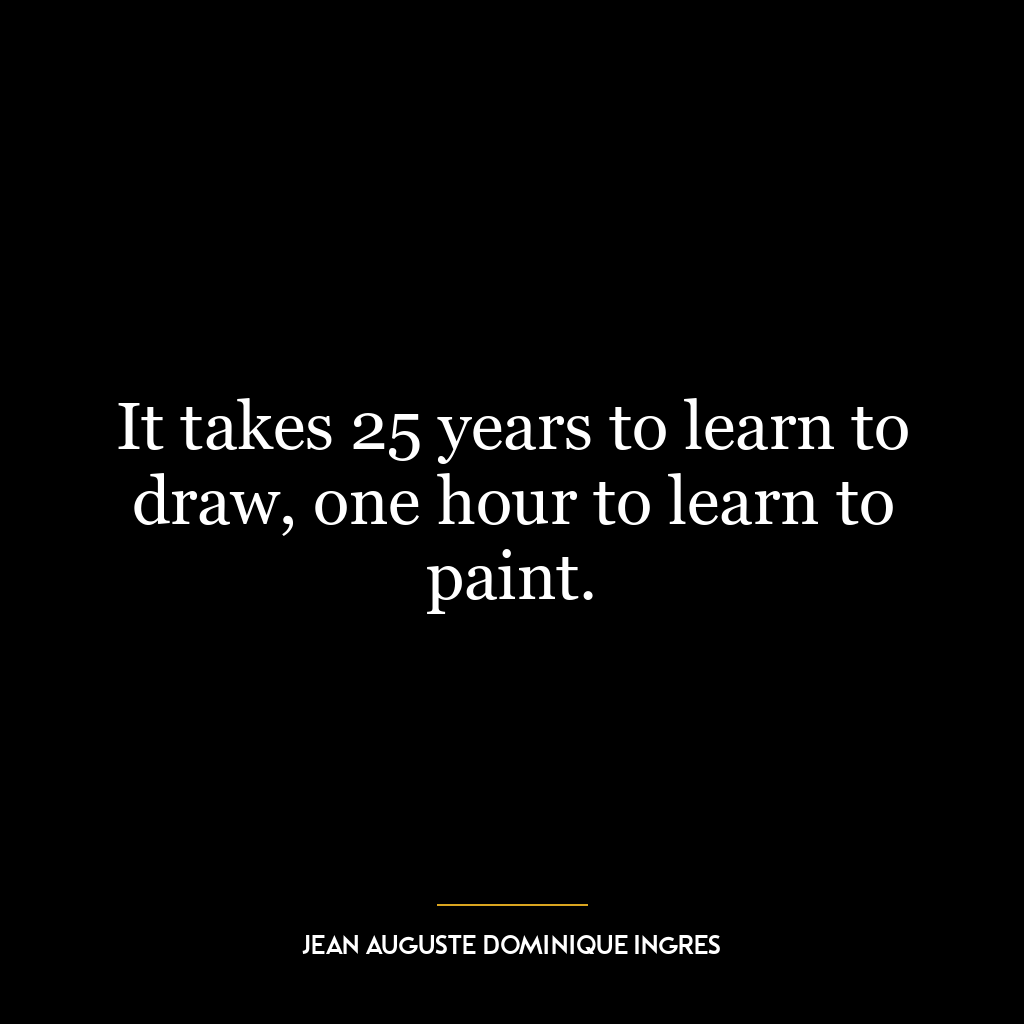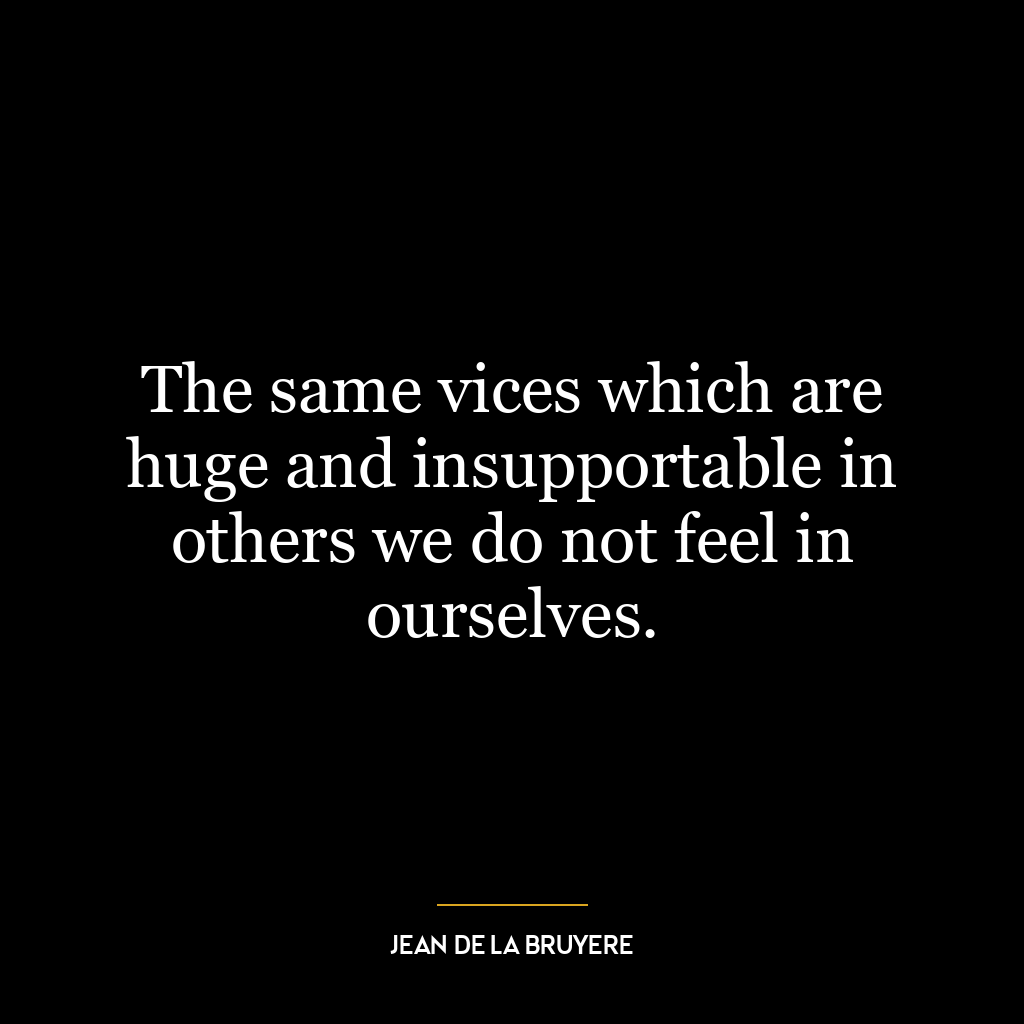Vice may be learnt, even without a teacher
“Vice may be learnt, even without a teacher” is a profound statement that underscores the inherent susceptibility of human beings to negative influences and behaviors. Essentially, Seneca the Younger is suggesting that one does not need formal instruction to learn bad habits, negative traits, or immoral actions. Instead, these vices can be picked up through observation, imitation, or even developed independently as a response to certain life experiences or circumstances.
This quote emphasizes the inherent human capacity for self-corruption and the ease with which individuals can slip into harmful patterns of behavior. It serves as a reminder that the path to vice is often easier to tread and more tempting, as it does not always require an external guide or mentor.
Applying this concept to today’s world, we can see that vices are often learned through exposure to negative influences in our environment. For instance, a person might pick up the habit of smoking or drinking excessively by observing these behaviors in their peers or family members. Similarly, dishonesty or corruption can be learned by observing these traits being rewarded in society or the workplace.
In terms of personal development, this quote serves as a stark reminder of the need for self-awareness and vigilance. It suggests that individuals must be mindful of their own susceptibility to negative influences and take active steps to guard against them. This might involve consciously choosing positive influences, seeking out healthy environments, and making a concerted effort to cultivate virtuous habits.
Moreover, it emphasizes the importance of self-education and personal growth. Rather than passively absorbing the behaviors and attitudes of those around us, we should strive to learn from positive role models, seek out beneficial knowledge, and actively shape our own character and conduct.
In conclusion, Seneca’s words are a powerful reminder that vice does not need a teacher. It is a call to action for individuals to remain vigilant against negative influences and to actively pursue virtue and personal growth.

